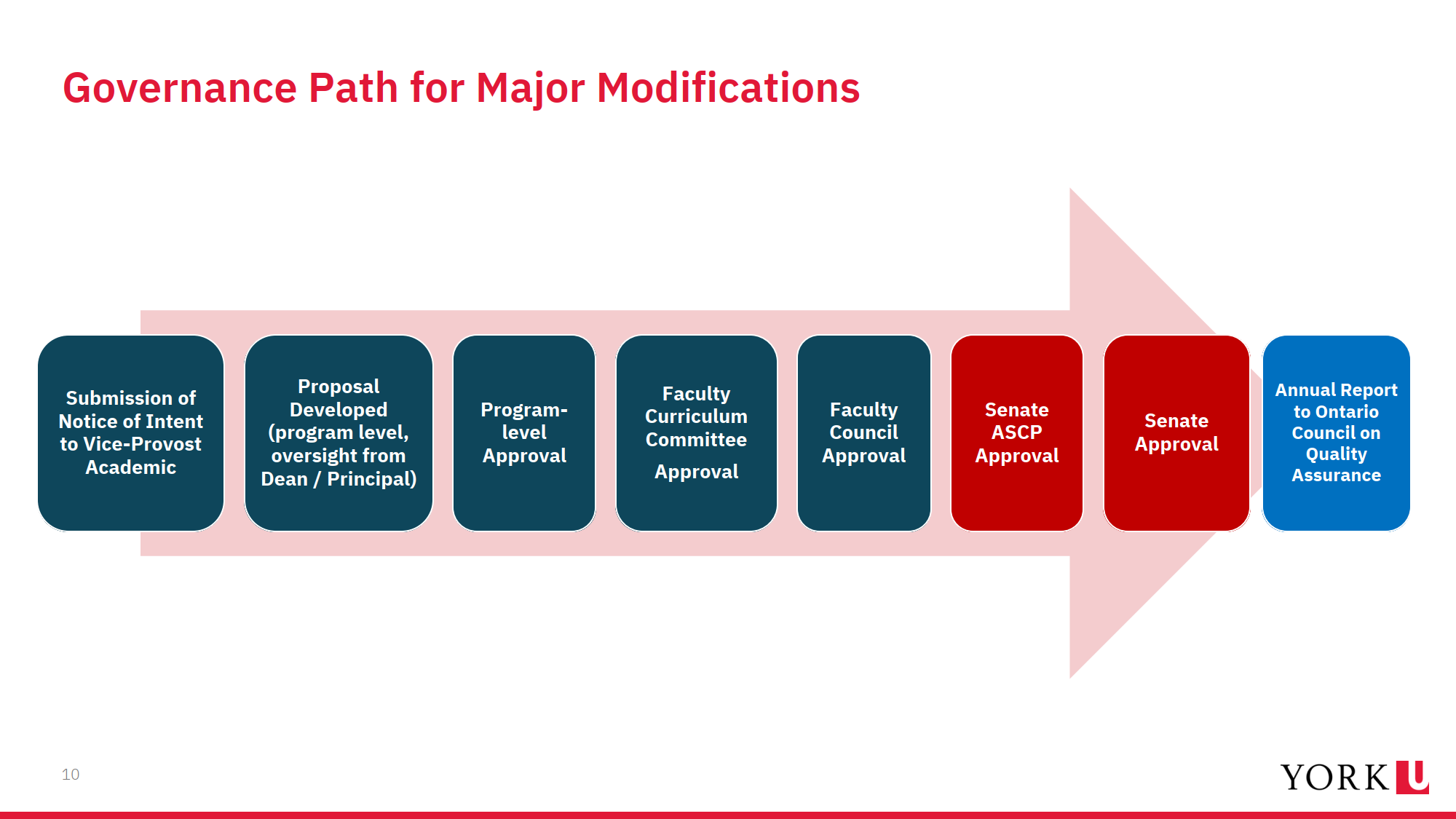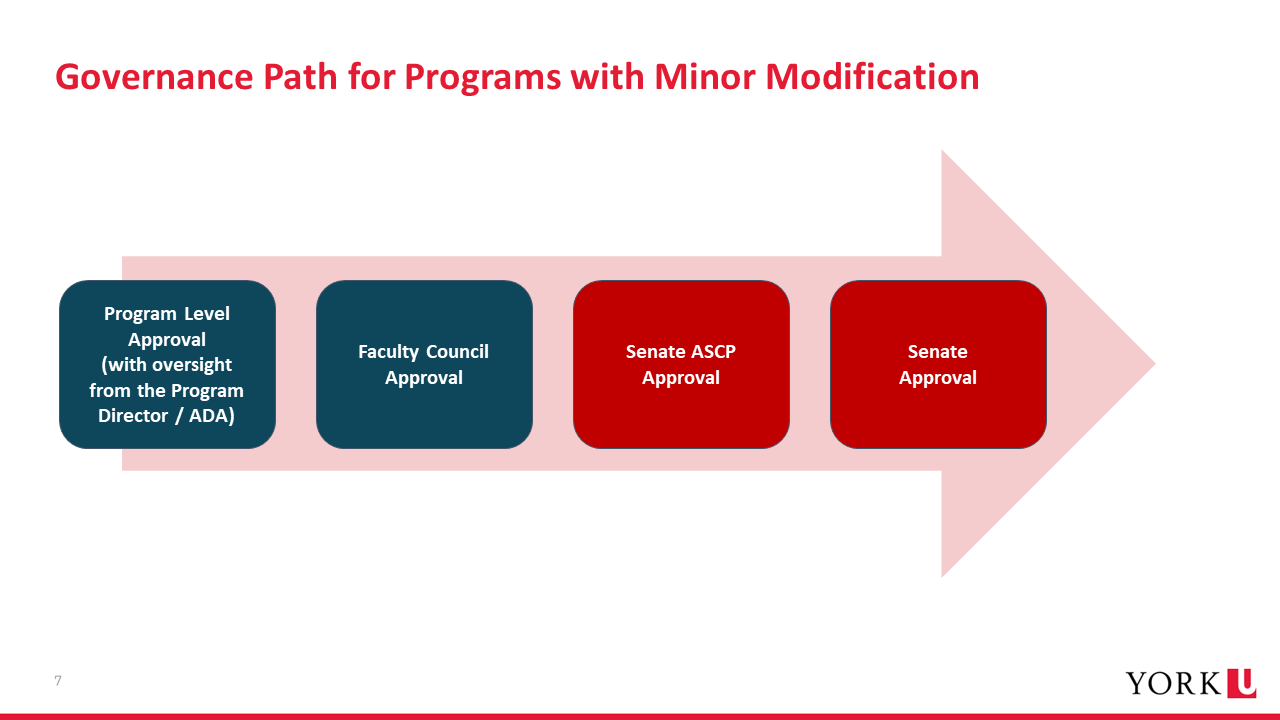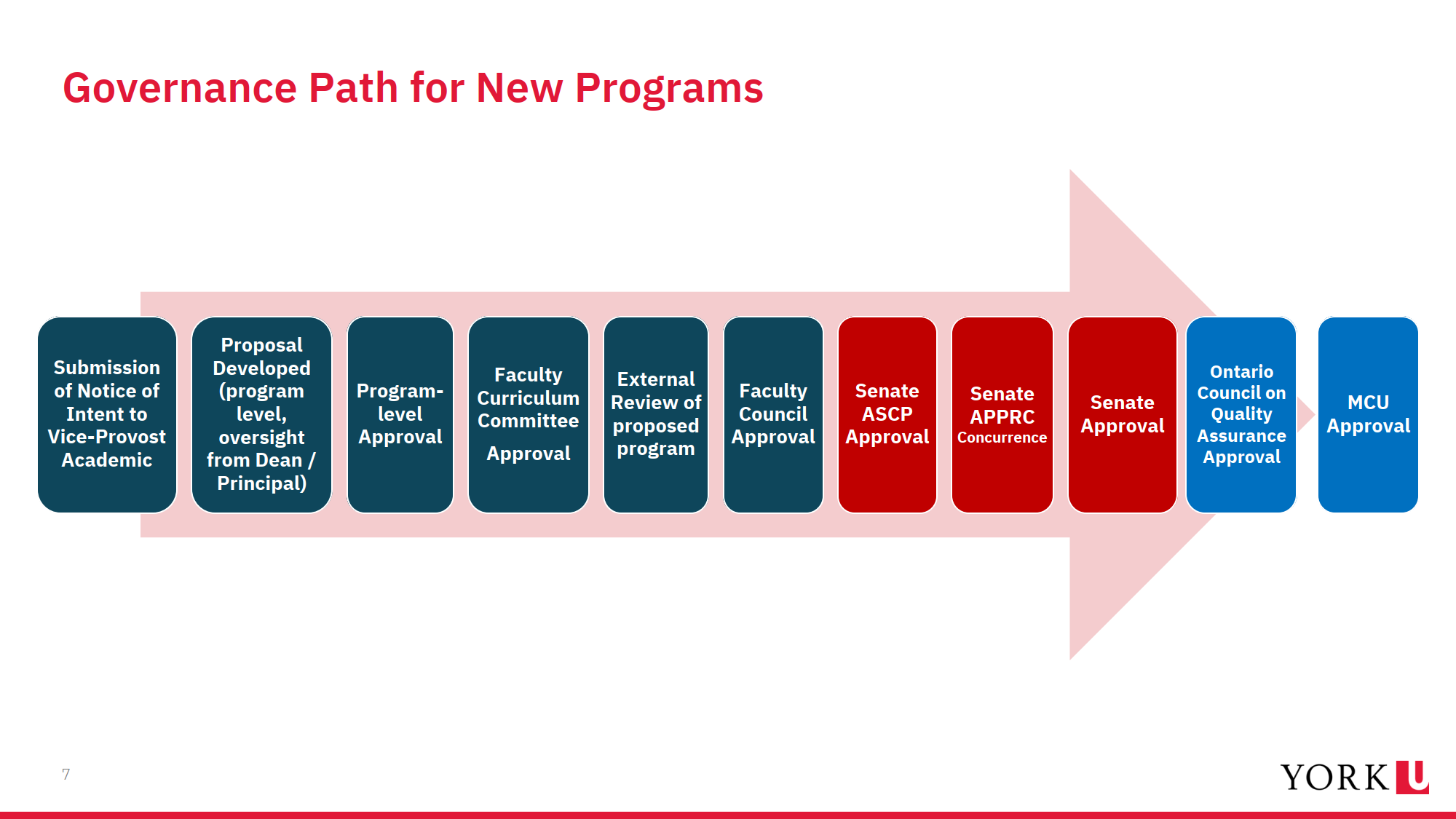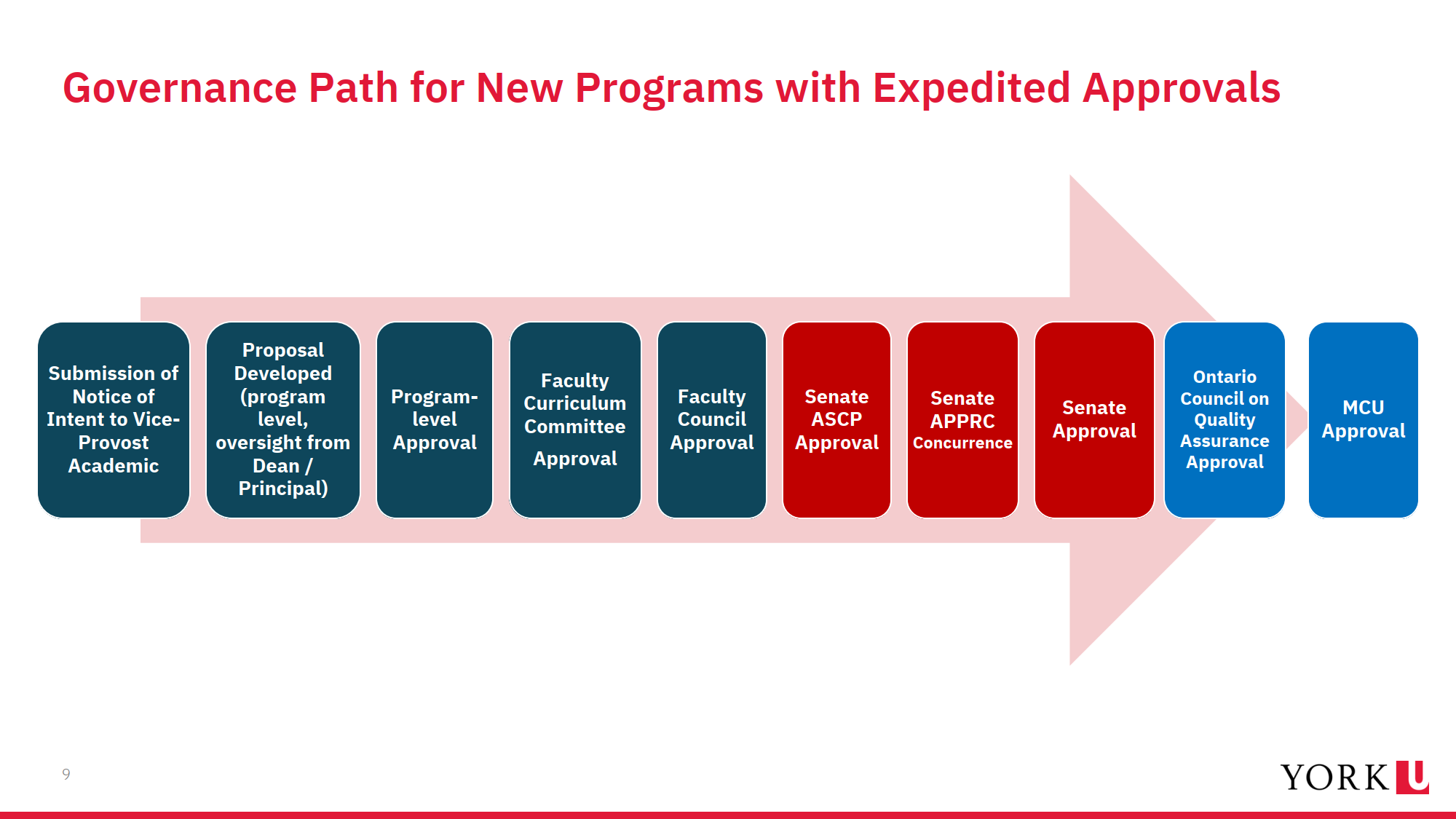Program Design & Approval Process
York University’s Quality Assurance Procedures (YUQAP) outline the protocols for the assessment and approval of new programs, review of existing programs, modifications to existing programs and closure of programs.
Some curriculum and academic standards are not included in the YUQAP guidelines but still require approvals at the Faculty and Senate level. Examples include:
- admission requirements
- new rubrics
- program name changes
All program proposals require the appropriate committee approvals both within Schulich and York. For more information about proposal procedures and approvals review the steps below and contact the appropriate program committee secretary or email Schulich Faculty Council if you require further clarification.
1. Determine the Change
Consider student feedback, course evaluations, instructional challenges, and gaps in learning outcome achievement. Browse the resource section below for additional ideas.
2. Determine the Scope of Change: Is it Major or Minor?
Examples of major and minor program changes are listed below.
Major modifications:
- Substantive changes to program learning outcomes, requirements/courses
- Addition of a part-time or full-time option to an existing program
- Offering an additional stream of an existing program
- New certificates
- New specializations with transcript notation or altering an existing specialization to have transcript notation (New specializations without transcript notation require Faculty level approval only)
- Closure of a certificate, diploma or program
Minor modifications:
- Changes at the course level including new, expired and modified core courses
- Minor edits to core course lists within degree requirements
- Edits to admission requirements
- Change of title
Not sure of the scope of change? Review the Templates and Guidelines available on the YUQAP site.
3. Submit Notice of Intention (NOI) for a Major Modification to a Program
The Notice of Intent (NOI) is designed to facilitate early consultations to ensure that changes to a program will complement existing programs and ensure that competition or duplication is avoided.
Proponents shall submit a formal NOI to the Associate Dean Academic’s Office prior to developing a major modification proposal. The Office of the Associate Dean Academic will in turn notify the Office of the Vice-Provost Academic. The approval of this office is needed before changes to the program can be drafted.
4. Consult with Colleagues
As changes are introduced within programs, it is important to still maintain the curriculum’s overall coordination, coherence, and comprehensiveness. All major changes need the approval of the program director(s) and relevant faculty. This assures that there has been a review of the change in the context of other offerings in the discipline and the program.
5. Proposal Templates and Approval Process
Fill out the appropriate proposal forms and prepare the supporting documentation. Send the package to the area coordinator and program directors(s) to obtain their formal signatures of support.
The proposal package should include the following:
- Motion and Rationale document addressed to Faculty Council
- proposal forms: course change proposal form, new course proposal form, major program change form, minor program change form
- supporting documents as needed e.g., library statement, course outline
- signatures of approval/support (forward the corresponding emails of support to the committee secretary)
6. Timelines and Deadlines
In order for program changes to be implemented for the following academic year, proposals need to be approved by Senate no later than the February or March meetings. For more information about the Schulich Faculty Council and program committee meeting dates visit Academic & Administrative Governance. Senate committee meeting dates available here.
1. Determine the type of new program
There are two types of new program approvals:
- New Degree Program Approval – Applies to new programs where a similar option has not already been approved eg. undergraduate degrees, undergraduate honours specializations and majors, graduate degrees.
- New Programs for Expedited Approval – Applies to new graduate diplomas, dual credential programs (with existing parent programs, joint degree programs (with existing parent programs)
Not sure of the type of new program? Contact the appropriate program committee secretary or email Schulich Faculty Council .
2. Submit Notice of Intention (NOI) to Develop a Proposal
The Notice of Intent (NOI) is designed to facilitate early consultations to develop a program that will complement existing programs and ensure that competition or duplication is avoided.
Proponents shall submit a formal NOI to the Associate Dean Academic’s Office prior to developing a new program. The Office of the Associate Dean Academic will in turn notify the Office of the Vice-Provost Academic.
3. Proposal Templates and Approval Process
For more information about the proposal templates and approval process for New Degree Programs visit New Program Approval.
Governance Path for Program Approval
4. Timelines and Deadlines
The new program approval process requires internal and external review. For new programs to be implemented for the following academic year, proposals need to be approved by Senate no later than the February or March meetings. For more information about the Schulich Faculty Council and program committee meeting dates visit Academic & Administrative Governance. Senate committee meeting dates available here.






